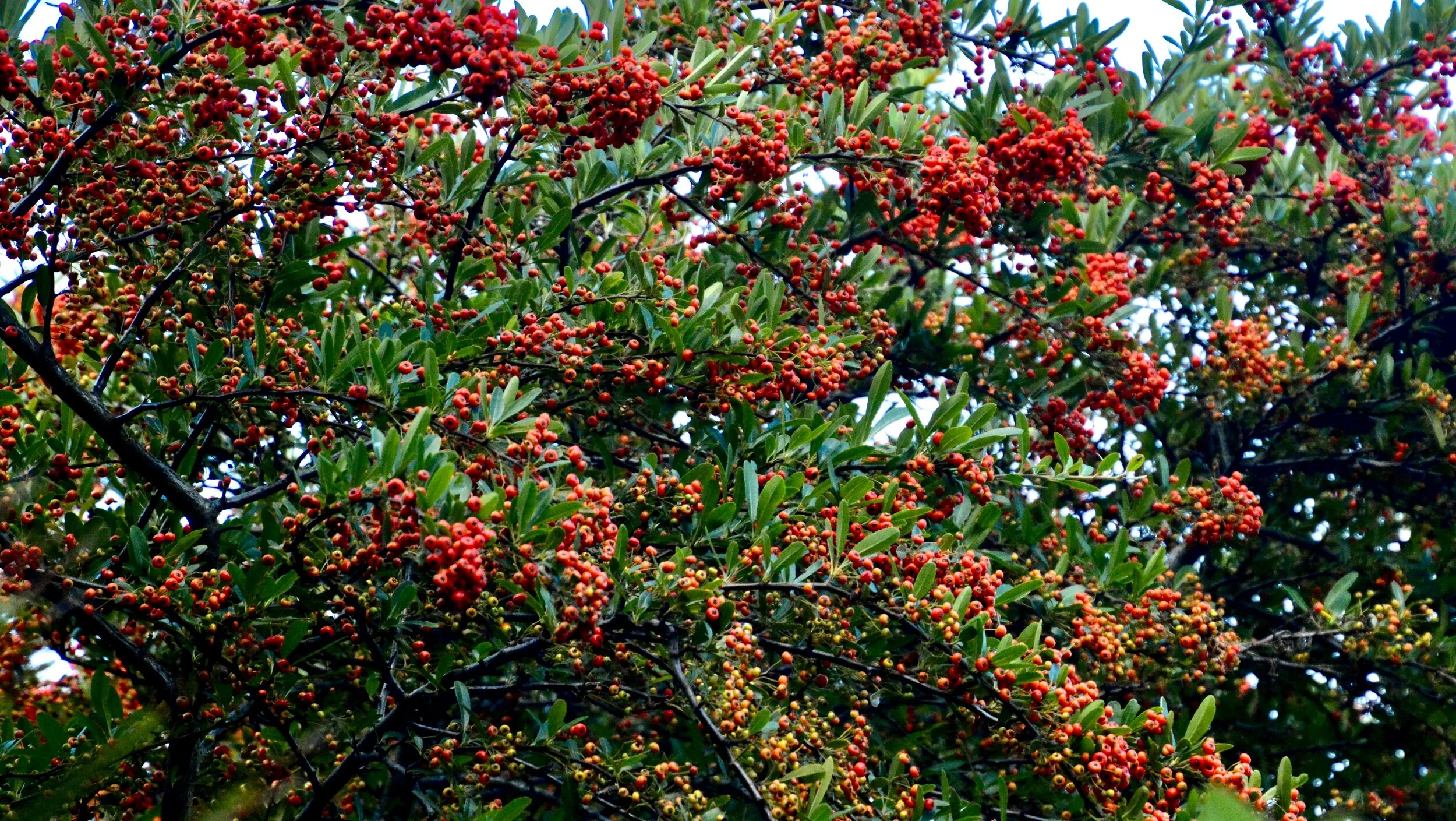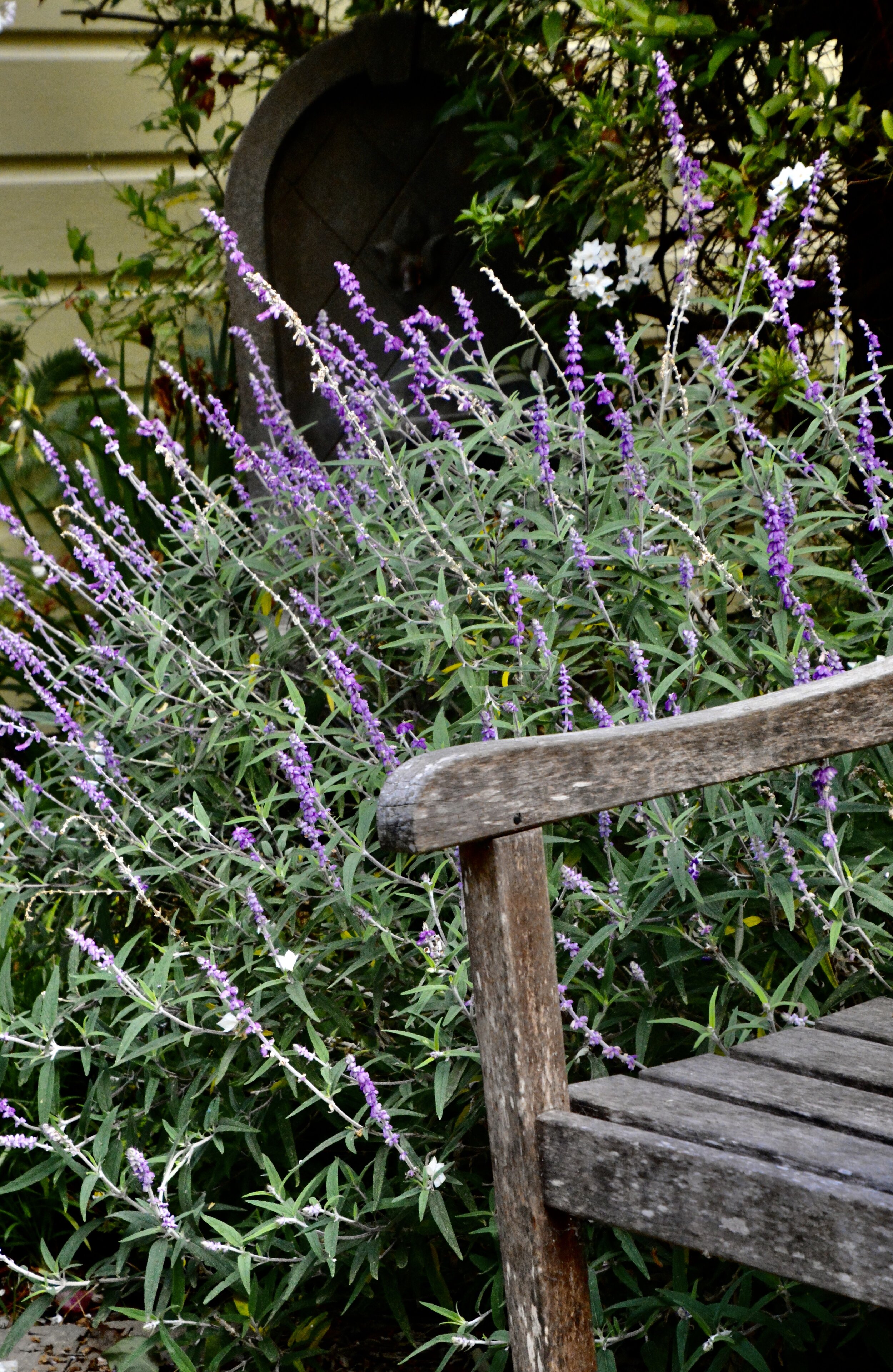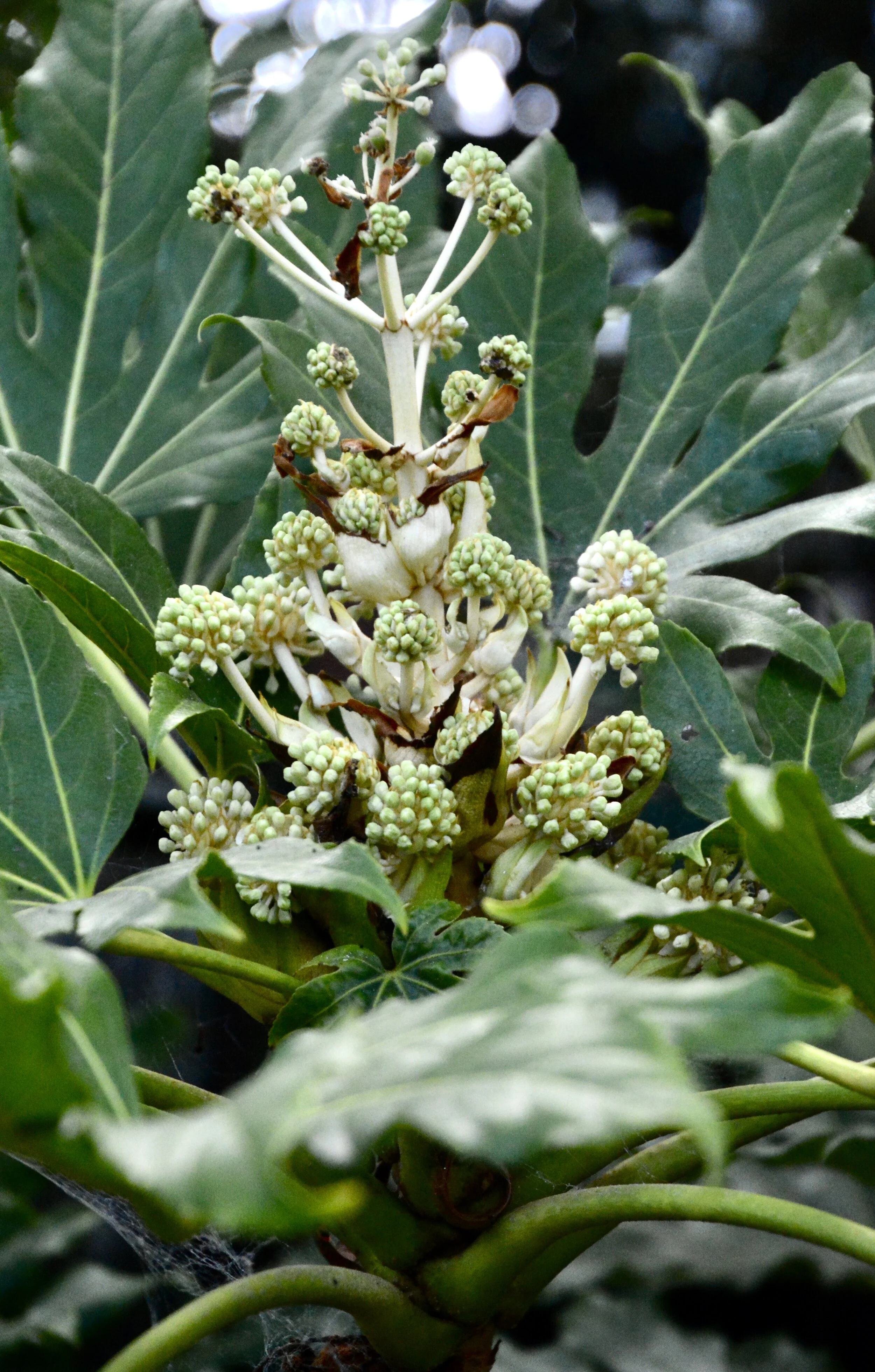Shelter in Place, San Francisco, September 28, 2020
I’ve been enjoying for days the bright red berries across the fence - the neighbor’s acacia tree that was flowering in May (Day 59) has now come full circle and borne abundant fruit. Poor color-blind John, alas, is missing out. He sees nothing but a mass of green, at least from the deck where we are stranded (the heat and the distant fires have begun again to lay the city low). This is usually the loveliest time of year in San Francisco. Maybe there will be better days in our backyard before the bright red berries disappear.
Meanwhile, my FaceBook page is full of friends’ spectacular photos of the fall in Minnesota and New England. I can almost feel the glorious, crisp air and smell the end of summer all the way from here. Those pictures (and the berries on the tree next door) are at least some consolation in this week when we were meant to journey east for a wedding now postponed. How we will miss the family, I cannot even say! And how sad I am to miss a chance to see and feel fall’s cold descending. Ah well. Here we are, and here we’ll stay, enjoying the berries from a distance as we wait for better days.
Day 188: Let it Go
Shelter in Place, San Francisco, September 26, 2020
The Mexican Bush Sage (Salvia leucantha) js raging now, full bloom. In fact, the sage and the potato vine above it have conspired to take over this corner of the garden. And between my still-limited mobility and their determination, these flowering lovelies have gone unchallenged, so I have chosen to focus on their wild beauty and enthusiasm rather than mourn the loss of a fountain gone to hiding in the shadows. There’s aways time to find the balance, make it right.
We make choices in the things we carry with us and that which we leave behind - loves, fears, memories, sadness, pleasure. Every moment of our lives constitutes a weighing and reweighing of the things that serve us, a small (or large) recalibration. But the burden these days feels heavy indeed, and I cannot seem, for once, to right the weight. How and where do I find joy? How do I balance fear, worry and helplessness with action and resolve? How are we all to cope with the months to come, doing what we can - fearing it is not enough - and letting go the rest? Will we ever have another chance to make it right?
Day 186: What is to Come?
Shelter in Place, San Francisco, September 23, 2020
When the Fatsia Japonica (glossy-leafed paper plant) blooms, it does so in spectacular style, forming a stalk full of individual pods that look like - you guessed it - corona virus cells (everything these days reminds me of the virus). Eventually, the pods will open and uncurl into small, white flowers that then become dark berries in the spring. But this branch of buds, right now - the collective ‘virus cells’ - reminds me of depictions from my youth of (undoubtedly friendly) multi-eyed space travelers emerging from their capsule. “We come in peace…”
Back in 1962, my favorite, favorite teacher got teary-eyed one day, as we watched some satellite launched into space, over what seemed like accelerating discovery and good fortune of every kind throughout the world. “You are the luckiest generation that has ever lived,” she told us. “From now on, through scientific discovery, through immunizations, civil rights, decreased poverty, education, and the lessons of the past, your lives will do nothing but get better as long as you live.” I will never forget her words. I’d never seen a teacher cry.
It’s taken my whole lifetime to count up all that she had witnessed in her life to engender such optimism, the hardships my teacher had once endured and hoped would never come again. And for the most part, I have shared her sense of wonder at my own good luck. Still do. Generally. But here we are now, frozen in a nightmare mostly of our own making, and I have a sense that perhaps my luck - our luck as a nation - is running out. As I approach my own elder status during these troubled times, I ask myself daily what my role should be. How do I pass on that sense of promise to another generation when I witness many of the things my teacher never thought we’d see again reach our collective doorstep: rising nationalism and racism, the loss of democratic norms, economic insecurity for all but the richest among us, distrust of science, environmental degradation and back-pedaling, lost international respect and cooperation, and a disease that we cannot muster the courage and determination to vanquish from our midst? What do I do? What do I say to make a difference?
I take heart from the Japonica’s quirky buds as I ponder these hard questions, and I look forward to the flowers that they will soon become. But what will have happened before these flowers turn to berries, what will this country be like next spring?


